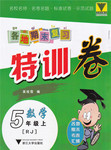题目内容
阅读理解
阅读下列短文,从每题所给四个选项(A,B,C和D)中,选出最佳选项.
Every day millions of letters go from one country to another. Letters mailed in Italy are received in Japan. Letters mailed in Canada are received in Africa. On the letters are many different kinds of stamps, bought in different countries.
The Universal Postal Union helps each letter get to the right place as quickly as possible. It sets up roles about the size and weight of letters, postcards and small packages (包裹). It has rules that all countries must follow about international postal rates(费用).
One hundred years ago, international mail did not move so smoothly. One country did not always accept another country's letters. Letters from some countries were too large to fit into the mailboxes of other countries. Letters traveled by many different routes(路线). Some were lost along the way.
Sometimes the person who sent the letter could pay only part of the postage. The person receiving the letter had to pay the rest.
The United States was the first to suggest that all countries work together to settle the questions of international mail. In 1947, men from twenty-four countries met in Switzerland to form the Universal Postal Union. Today, more than 120 nations belong to this union. From its office in Switzerland, the union helps the mail to move safely and quickly around the world.
1.From the story we can infer that ________.
[ ]
A.mail is important to all countries
B.not enough letters are sent all over the world
C.all the letters must go to Switzerland first
D.all stamps look exactly the same
2.The Universal Postal Union was formed ________.
[ ]
A.to help move mail quickly around the world
B.to give many men a chance to work
C.to help men meet in Switzerland
D.to look for the lost letters along the way
3.Which statement does this passage lead you to believe?
[ ]
A.Countries around the world need each other's help.
B.Most people do not put enough postage on letters.
C.It is not possible for letters to get lost on the way.
D.Some of the letters are too large to be put into the mailbox.
4.The underlined word“postage”in this passage means ________.
[ ]
A.money paid when you buy a stamp
B.money spent on an envelope
C.the charge for carrying a letter by post
D.the pay postman receives for his work
5.This passage is mainly about ________.
[ ]
A.different kinds of stamps in different countries
B.an organization that makes rules
C.international mail
D.the size and weight of letters
解析:

 中考解读考点精练系列答案
中考解读考点精练系列答案 各地期末复习特训卷系列答案
各地期末复习特训卷系列答案